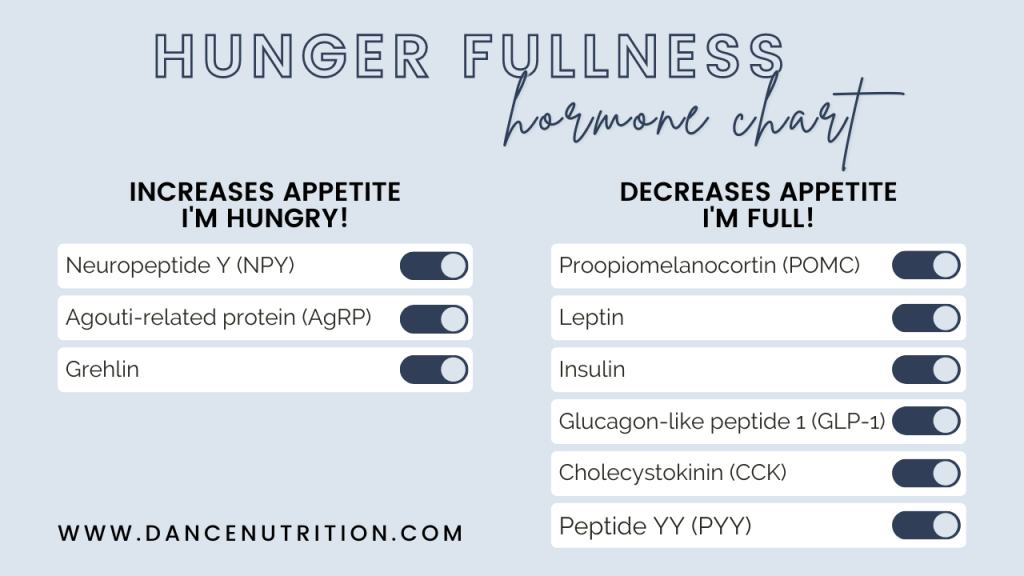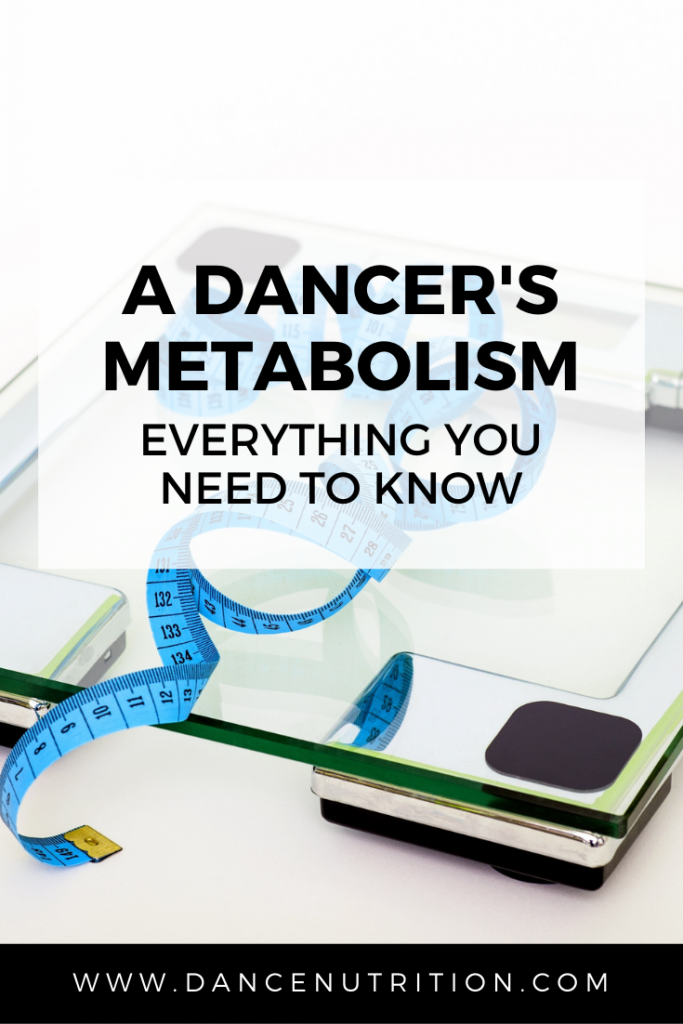If you’re wondering about your metabolism and how it works, then chances are you have questions about your body weight, shape, or size. Perhaps you’re comparing your body to another dancer’s, thinking, “Wow, they can eat whatever they want! I’d gain so much weight if I ate like that!” To answer this question and more, here’s an in-depth look into the intricacies of a dancer’s metabolism, how it influences their energy, and strategies for optimizing it.
What is Metabolism?
Metabolism is a scientific term representing the interconnected chemical reactions that support the multitude of systems working in your body. To function, your body utilizes calories from food as energy to fuel everything from your basic metabolic needs (like breathing and blood circulation) to your physical needs (like walking and dancing). We call this energy utilization your body’s energy expenditure.
Understanding A Dancer’s Energy Expenditure
Energy expenditure can be classified into two categories: physical and metabolic. A dancer’s physical energy expenditure is higher than most and varies from day to day because of the intensity and duration of training and performances.
A dancer’s metabolic expenditure or, basal metabolic rate (BMR) represents the energy used while at rest— the energy needed for maintaining vital functions like breathing, circulation, and cellular production. Several factors influence BMR, including those out of our immediate control:
- Age: younger dancers typically have higher BMRs.
- Sex: Dancers assigned male at birth usually have higher BMRs due to more muscle mass.
- Genetics: metabolic rates can be inherited.
- Body composition
The Role of Genetics: Nature vs. Nurture
Yes, genetics play a role in your body’s metabolism, and subsequently, your body weight, shape, and size. Your set point weight reflects this genetic blueprint. It represents a weight range that can be maintained without restrictive dieting or exhaustive exercise. While much about the body’s set point weight remains unknown, dieting can negatively impact it. Similarly, we don’t fully know why one dancer’s metabolism might be genetically “fast” and another dancer’s metabolism might be genetically “slow.” Despite the metabolic deck of cards you’ve been dealt, you can nurture an environment within your body that promotes a well-functioning and efficient metabolism. Eating sufficiently and consistently is a major first step.
The Impact of Dieting on Metabolism
When we reduce the number of calories eaten daily, our body metabolically adapts, reducing the number of calories it burns to function (slowing your BMR). Biologically, this is a survival mechanism designed to protect humans from starvation. It’s also why 90% of dieters regain their weight.
Oh no… I’ve restricted my calories for a long time… did I permanently damage my metabolism?
You may have slowed your metabolism, but you can implement several strategies to improve it. Much of this work begins with an overhaul of your relationship with food, allowing you to eat more easily and consistently.
For some dancers, it also means reevaluating your body image. Ask yourself: are you micromanaging your diet to change your weight or how your body looks? In addition to building a supportive body image, it’s likely time to shift from restrictive eating to proactive fueling. Start with these two articles to learn more:
Hormonal Balance Matters
Hormonal regulation of our appetite begins in the brain’s hypothalamus, where feeding behaviors are communicated between the brain and body. Leptin, a hormone created primarily by and stored in our body’s fat cells, is released in response to eating. This release of leptin communicates to our brain that we’re satisfying our hunger. The result? Leptin tells our brain when we’re feeling full.
If you’ve ever tried following a calorie-restricted or low-fat diet, you probably recall battling a feeling of chronic (and gnawing) hunger. This results from leptin deficiency. Why? Another benefit of this “feel-full hormone” is to keep us satisfied between meals and snacks. Since our fat cells contribute to our leptin levels, a low percentage of body fat (from a low-calorie diet, low-fat diet, or excessive exercise) means low levels of circulating leptin.

5 Steps To A Healthy Metabolism
Start by taking the focus off of your “metabolism” and rather on your appetite. Improve how your body regulates your appetite using the following tips:
- Eat enough each day. Click here to learn more about calories for dancers.
- Eat consistent meals and snacks throughout your day. Here’s an article on the roles of practical hunger and proactive fueling.
- Avoid long periods between your meals and snacks, which can set you up for a drop in blood sugar and a surge in appetite-regulating hormones.
- Include sources of carbohydrates, protein, AND fat each time you eat. This combo promotes satiety and satisfaction.
- Utilize principles of gentle nutrition to choose foods for both your physical and mental health.
The Impact of Exercise on Metabolism
Strength-training activities like dance and Pilates can increase lean body mass. Muscle tissue is more metabolically active when compared to fat tissue (meaning it burns more calories and thus, increases your metabolic rate).
Before adding those extra strength classes to your already-packed schedule, realize that excessive exercise can cause hormonal imbalances that work against a so-called “increased metabolism.” Over-exercising puts you in a calorie deficit and as mentioned earlier, eating too few calories knocks your hormones out of whack. To compensate for the deficit, your metabolic rate reduces.
Also, body fat plays a vital role in controlling appetite. In other words, body fat regulates how much you eat throughout the day and too little body fat can dysregulate hunger and fullness cues. So while extra exercise might increase your metabolically active muscle tissue, restrictive dieting AND low body fat outweigh this.



